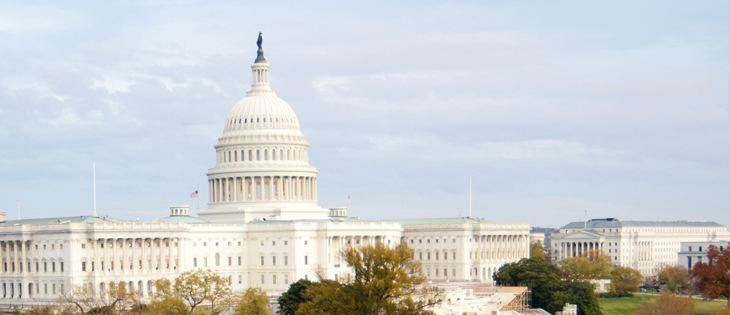Middle-Market Public Policy Roundup
The Senate passed a 2018 budget, speculation over the next Fed chair continued, and a surprising new development emerged in tax reform discussions.

This week MMG was watching the Senate as it passed its version of a 2018 budget, speculation over the next Fed chair, and a surprising development in tax reform discussions.
A Taxing Endeavor
Last night, the Senate passed its version of a 2018 budget, The Wall Street Journal reports, completing the next step in the process of passing a tax overhaul. The budget was completed after a “vote-a-rama” in which many amendments in a row were offered up; those that passed were highly technical and unlikely to affect any further considerations of the bill. The budget is now back to the House of Representatives to pass. Any bill must be identical in both the House and the Senate.
What are the differences to be reconciled?
Deficit Financing
House bill: Revenue neutral. Any tax bill cannot increase the federal deficit.
Senate bill: Deficit-financed. It allows a bill that would increase the deficit by $1.5 trillion.
Spending Cuts
House bill: Requires $203 billion in spending cuts from miscellaneous programs over 10 years.
Senate bill: No spending cuts, but it allows for increased federal revenues by allowing oil drilling on Alaskan land.
Normally, the Senate and House would have a formal conference at this point, but it is likely that the House will vote without holding one, expediting any tax bill. It is probable that the House will pass the Senate version in its current form.
After the budget is formally passed, both chambers can move to a tax reform bill. Expect the House Ways and Means Committee and the Senate Finance Committee to release separate tax plans, whose differences will need to be reconciled in a House-Senate conference. Any party-line vote on the House floor can then lose up to 22 GOP members, while any such vote on the Senate floor can lose two.
Fed Chair Considerations Underway
Current Federal Reserve Governor Jerome Powell is at the top of the short list to become the next chair of the Federal Reserve, Politico reports. Powell would curry favor with Republicans due to his private sector experience as an investment banker, and he holds some sway with Democrats, having voted with current chair Janet Yellen on monetary policy and financial rules post-crisis. He’s currently favored by Secretary of the Treasury Steven Mnuchin. Powell is seen as the candidate likely to face the least resistance in the Senate. Yellen, National Economic Council Director Gary Cohn, former Fed Governor Kevin Warsh and Stanford economist John Taylor are all in the running as well.
Why does this matter? A more conservative chair may unwind the Fed’s balance sheet too quickly, slowing economic growth. A more liberal Fed chair may unwind the balance sheet too slowly, preventing the Fed from being able to provide robust stimulus in a recession.
Homeowner Tax Break Rewrite May Be Part of Reform
In one of the most surprising facets of the tax reform talks, proponents of the mortgage interest deduction are open to a change to the law, Politico reports. The National Association of Home Builders and the Mortgage Bankers Association have both stated they are open to a rewrite of the rule. The mortgage interest deduction has long been considered a “third rail” of tax reform talks. The GOP has gone so far as to explicitly state that the deduction would be maintained in any tax reform bill. The only other deduction explicitly maintained in the GOP framework released last month was the charitable donation tax deduction. A change to the mortgage interest deduction could help raise essential revenues for any tax package.
Check back each Friday for the weekly Public Policy Roundup. Is there a policy issue you’d like us to cover? Send your suggestions to MMG Associate Editor Kathryn Mulligan at kmulligan@acg.org.

Ben Marsico works on public policy issues for ACG.


